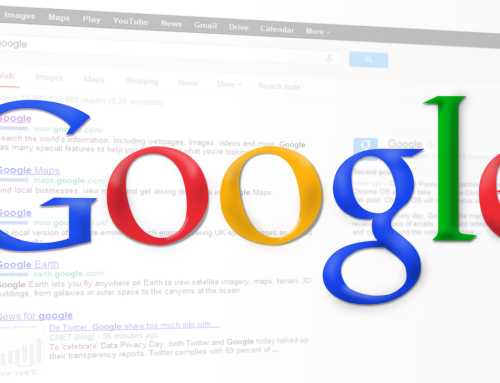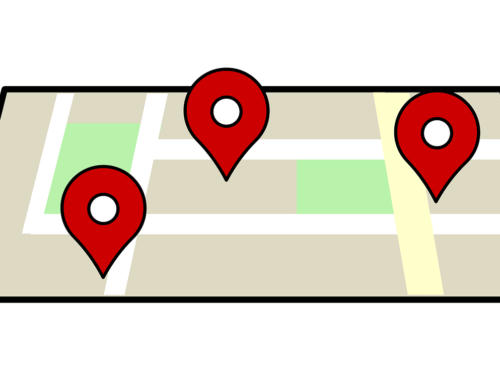Differences Between WordPress.com & WordPress.org
Trying to work out whether you would like to launch your site on WordPress.org or WordPress.com? You can attend WordPress.org and download a free version of WordPress which will allow you to create a totally unique website.
You’ve got to buy your own web hosting–but you can’t put a price on the power to style, control, and monetize your site to your liking.
With WordPress.com, you’ll build a blog on their website. You don’t need to host anything, but you sacrifice tons of the pliability and style freedom that creates WordPress so popular.
While it takes the guesswork out of website building, WordPress.com has limitations that appeal more to beginners with limited technical knowledge.
WordPress.com or WordPress.org: Which is Better?
WordPress.com may be a free platform perfect for beginners who want to fiddle with a basic website. Its simplicity is second to none, so you’ll focus more on creating great content without fear about technical stuff. Create an account today and have your free website ready in minutes.
WordPress.org is best for bloggers and businesses who want to require full control of their websites. You’re liberal to integrate it with custom themes, plug-ins, and tools, so your website looks, functions, and makes money precisely the way you would like it. Download WordPress now and build an internet site on your terms.
A Review of the simplest Website Builders
If you’re trying to find an internet site builder, this in-depth review of my picks should point you within the right direction.
A website builder should assist you create an internet site in minutes without touching any codes. I’ve built countless websites over the years, so i do know firsthand what essential features to seem for.
Spoiler alert: WordPress is one among the simplest, but you’ll find other alternatives which may better meet your requirements.
WordPress.com Wins
Easy to use: WordPress.com may be a free managed hosting platform, so starting your website is as easy as creating an account.
The team behind WordPress.com takes care of everything in order that you won’t need to download any software, buy a hosting plan, or manage a server.
This hands-off sort of website creation is right for those that want to focus more on their content and launch as many free websites as they need.
100% free for basic users: It’s liberal to start an internet site with WordPress.com. Paid plans also are available if you would like to get rid of ads, have a custom domain (such as neilpatel.com) rather than the default subdomain (neilpatel.wordpress.com), and obtain a bigger space for storing. the value of upgrading to paid plans can range from $48 per annum for private to $540 per annum for an Ecommerce plan.
Hands-off maintenance: Having a WordPress.com website is like renting an apartment minus the rent. You get to enjoy the space while the owner takes care of the upkeep.
You don’t o got to worry about backups, updates, and other daunting technical stuff—all of that’s handled by WordPress.com’s developers and support engineers.
Multiple customer support channels: Support forums are available to answer any technical questions, whether you’re employing a free plan or a premium one.
Counting on the paid plan you’re subscribed to, you’ll also access more personalized, round-the-clock support via live chat or email.
Basic customization options: albeit it’s free, WordPress.com still gives you adequate room to personalize your website to your liking.
There are many free themes to settle on from, so you’ll pick something that reflects your style and personality.
Free WordPress.com websites also accompany built-in features like social sharing buttons, polls, comments, image galleries, SEO, and get in touch with forms, so you don’t got to install any third-party plugins.
Built-in security features: WordPress.com may be a closed ecosystem that’s already secured by default.
You won’t need to install security measures or monitor your website 24/7 for possible malware attacks. Everything is taken care of so you’ll focus your attention where it’s needed more–creating content.
Painless migration option: do you have to decide it’s time to let your website grow into a self-hosted platform, WordPress.com won’t stop you from doing so.
Free WordPress.com features a built-in export tool which will pack your entire website into one downloadable file.
You’ll prefer to do the transfer yourself for free of charge or let WordPress.com hold your hand for little fee.
Completing the transfer is as easy as clicking the import tool button in your new self-hosted WordPress dashboard to possess your files moved into their new home.
WordPress.com Losses
Unreliable traffic monitoring tool: All users can view a Stats page to ascertain what proportion traffic their websites get at any given time and where their visitors come from.
However, it comes with many limitations, like new visitors not reflecting on the entire view count until two hours later.
If the visitor views the homepage while reading a post, the view are going to be counted towards the entire views but not towards the individual post.
Google Analytics presents more precise data, but you can’t integrate it with WordPress.com unless you’re on Premium or higher plans.
Limited ability to monetize: The free WordPress.com isn’t designed nor allowed to form you money. You’ll try your luck with WordAds, WordPress.com’s own advertising network, but you would like a custom domain and thousands of traffic per month to be qualified.
And you get accepted, you’ll only be sharing your revenue with WordPress.com. Google Adsense and ecommerce functionality are only available if you upgrade to Business or higher plans.
Not good for branding: WordPress.com handles everything for free of charge at the expense of flexibility. Although the free themes and built-in features are enough if you simply blog for fun, they leave tons to be desired for many users.
Furthermore, the WordPress.com default subdomain and ads won’t assist you establish a solid brand within the future.
You’ve got the choice to customize your website with third-party themes and plug-ins, but this is often a luxury only Business plan users can enjoy.
Restricted ownership: Creating a free website with WordPress.com means you don’t have a say within the majority of things concerning your website.
Their platform, their rules. First, your website address will use a generic subdomain (i.e., yoursite.wordpress.com) rather than a custom name that appears more professional.
You furthermore may don’t have control over the amount and kinds of ads your readers will see unless you opt to upgrade your plan.
Since your ownership is restricted, WordPress.com can delete your website if they discover it violates their terms and conditions.
Lackluster SEO: WordPress.com has built-in SEO features, but they’re only enough to make sure an honest user experience and maximum search visibility.
Free accounts only have access to a limited number of free themes, so there’s no thanks to upload a custom theme that gives better site navigation.
You furthermore may can’t install popular SEO plug-ins like Yoast SEO or All-in-One SEO, so it’s impossible to feature unique titles and meta descriptions to your articles unless you upgrade to a premium plan.
Lastly, free plan users can’t use a redirection plug-in, so pages that ought to are redirected to a different page will just stay and clutter the web site.
Who Wins
A wealth of DIY troubleshooting resources: WordPress.org is open-source software, so there’s an abundance of volunteers and experts who are willing to increase a hand.
Do you have to got to fix a technical issue affecting WordPress, assistance may be a few searches away through the WordPress.org support forums?
Freel traffic reporting and tracking: Get real-time traffic reports through Google Analytics, a free tool you’ll install in WordPress by pasting a couple of codes into your website rear or activating a plug-in which will do an equivalent without all the effort. no matter your hosting plan, you’ll use Google Analytics to urge valuable, granular insights about your visitors then use the info to guide you in making important business decisions.
Unlimited money-making potential: If you’ve got a self-hosted website with WordPress.org software, the sky’s the limit when it involves earning money. you’ll run ads on your own without sharing the revenue with anyone.
You’re also liberal to explore other monetization methods like affiliate marketing, publishing sponsored content, or building membership sites that sell premium content or courses.
What’s more, if you would like to create a web store, a WordPress.org website has the foremost robust ecommerce functionality.
Impressive flexibility: because of WordPress.org, you’ll have a self-hosted website and therefore the freedom to try to to anything you would like with it. does one want to vary your theme? You’ll install one among many custom themes online or build one from scratch with PHP and CSS.
There’s also an endless list of third-party plug-ins you’ll install to enhance your website’s look and functionality. From SEO tools to ecommerce extensions, there’s no restriction on how potent you would like your website to become.
Uncomplicated security setup: Keeping your site secure is as easy as installing a couple of plug-ins and letting your hosting provider do the remainder.
It’s not totally hands-off, but ensuring your website is secure doesn’t require a steep learning curve either. After all, you’ll easily reach bent your web host or one among WordPress.org support forums if you’re struggling to implement security measures on your own.
Full ownership and control: Building an internet site with WordPress.org means you’ve got full ownership of your web property.
There’s no higher power breathing down your neck which will banish your website the primary chance it gets.
As long as you’re not doing any shenanigans, you’ll rest well in the dark thinking you’ve got full control of your website’s destiny.
Freedom to leverage SEO: With full control also comes the facility to directly influence how your content ranks on search engines.
A self-hosted website gives you all the liberty to tinker with different SEO tools which will optimize your images, titles, meta description, site maps, and internal links.
Google Analytics is additionally easy to put in to quantify how effective your SEO strategies are and identify areas of improvement.
If the user experience may be a priority, you’ll also install and tweak your preferred custom theme to assist improve how your readers navigate your website.
Who Losses
Lacks simplicity for non-tech savvy users: WordPress.org is an open-source content management system, not a full-blown website.
To launch your website, you initially got to purchase a website name and buy a hosting plan. After downloading the WordPress.org software, have it installed in your web host.
Some hosting providers have also made this step easier by offering “one-click” WordPress installation. Although you don’t got to touch any codes, beginners may initially find the entire process intimidating.
Building and keeping an internet site aren’t totally free: WordPress.org itself is free. However, it can’t stand on its own unless you’ve got a website name and an internet host.
A website name is your website address and can cost a minimum of $10 per annum for a typical “.com” domain.
On the opposite hand, an internet host is where you’ll store your website files—including WordPress.org—and should cost you a minimum of $3 to $10 per month.
And don’t forget the value of premium themes and plug-ins which will further hurt your pocket unless you have already got a site that pays for itself.
Routine maintenance: Managing a self-hosted site is like having your own house. You’re liberal to do anything with it, but you’ve got to repair it yourself should things break.
You’re liable for updating the WordPress software and every one the plug-ins you’ve got installed. Web hosts offer backups, these are rarely comprehensive and guaranteed, so you furthermore may got to copy the files yourself.






